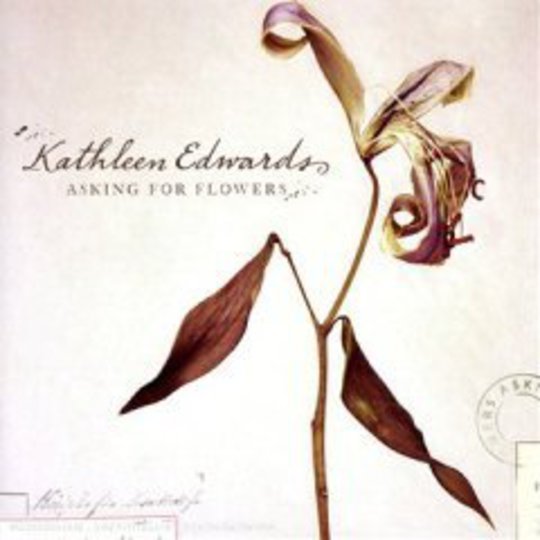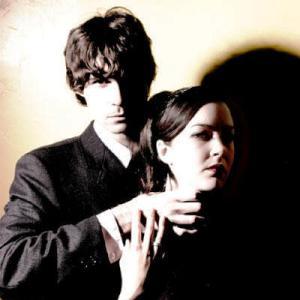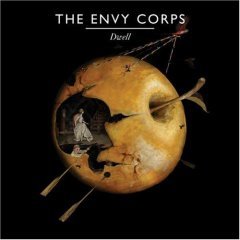Kathleen Edwards is the antithesis of popular right now. Her voice is plaintive, raspy, quite masculine, overwhelmingly Canadian and not at all stylish. She dresses conservatively, more often that not looking effort like a baker’s daughter than anything else. In addition, she also has quite the potty-mouth. She swears, spits and spews caustic sarcasm, viscerally tells it like it is, never succumbing to plying her craft with typical love songs. Instead, Edwards purports real music, music that is scratchy, dirty and caked in blood, worked in by hand and riddled with past scar tissue, and as a result, has never resulted in mainstream success, but left her with many admirers in folk and alternative country communities.
Fast forward to album three, the first one to get a proper release in the UK. Little has changed in her aesthetic over the years, as Edwards remains unattractive, spit-shined and dusty. But in doing so, the Hamilton, Canada-based songstress has creamed together her best set yet. In Asking For Flowers, Edwards is uncompromising, but sombre. She seeks forgiveness, not only for her but also the world she inhabits, a problematic dystopia populated by sadomasochism, social apathy and heartbreak. Immediately Edwards lashes out, tongue first with ‘Buffalo’ and ‘The Cheapest Key’. Sure it is upbeat, but in theme it is rather funereal, as Edwards paints an elegiac canvas, obsessed with wrongdoing, both by her and everyone else. But dark as all this may be, its sordid ethos is deeply engaging. Instead of hiding behind the shadows, commenting from afar, these songs are never afraid of their subject matter. She sings in the title track: “for every pill I took in vain, for every meal for you I made, for every penny I put away… asking for flowers, is like asking you to be nice.” It’s bursting with disappointment, but also blind optimism, as if Edwards tries to solve problems without answers. The song is depressing yes, but also utterly hopeful in tone, crafting a perplexing gem in every way.
Musically, Edwards sticks to what she knows best here. Utilising a tried and tested alternative country backdrop – slide guitars mingle with the odd dobro, a bit of pedal steel, harmonica and driving bass – Edwards pleads with each song, desperately seeking something different in each one. In the aforementioned ‘The Cheapest Key’, it is the soul of being neighbourly. With ‘Alicia Ross’, Edwards’ addresses public safety in a subtle tribute to a Toronto girl who was brutally murdered randomly by her neighbour, while the nation gets a kicking in ‘Oh Canada'. Over and over, Edwards’ confidence is ballsy and overwhelmingly honest. She sings like Lucinda Williams or Loretta Lynn; willing to die for each word, while knowing full well someone already had in the past.
But beneath all this, Edwards isn’t upset, just dreamy. She wants us be human, use our conscience, adopt common sense and be cautiously optimistic. In ‘Scared at Night’, among a haunting pedal steel backdrop, Edwards bellows “believe in me, all the days you’re unsure. Believe in me, you don’t have to be scared at night.” Remember that in all this respite, Edwards is still asking for something, be it flowers, forgiveness or human grace. While we may never have an answer, her attempts reveal a beguiling songwriter, a gorgeous album and, without fail, something to really think about.
-
8Shain Shapiro's Score






















